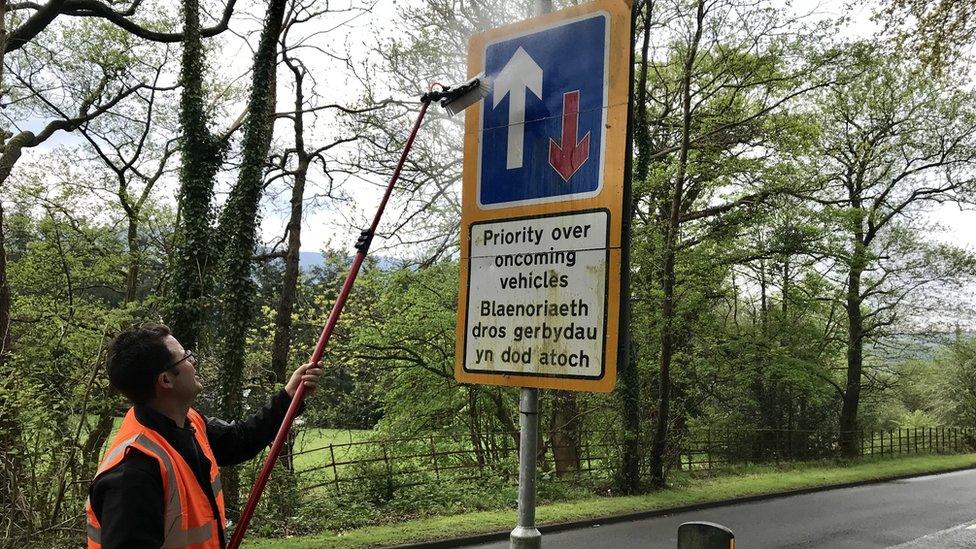Coronavirus: Glynneath rallies round in lockdown but what's next?
- Published
Tom Davies's hairdressing business is one of those affected by lockdown
There aren't many more typical towns in south Wales than Glynneath.
The former mining community has its industrial heritage, and is just a short drive away from the Brecon Beacons and picturesque waterfalls.
It can even count entertainers Ruth Madoc and Max Boyce as local luminaries; Max is president of the local golf club.
Like the rest of Wales, it could not escape coronavirus - and we have been speaking to the community about lockdown and what may happen next.
'I wouldn't want to risk anything'
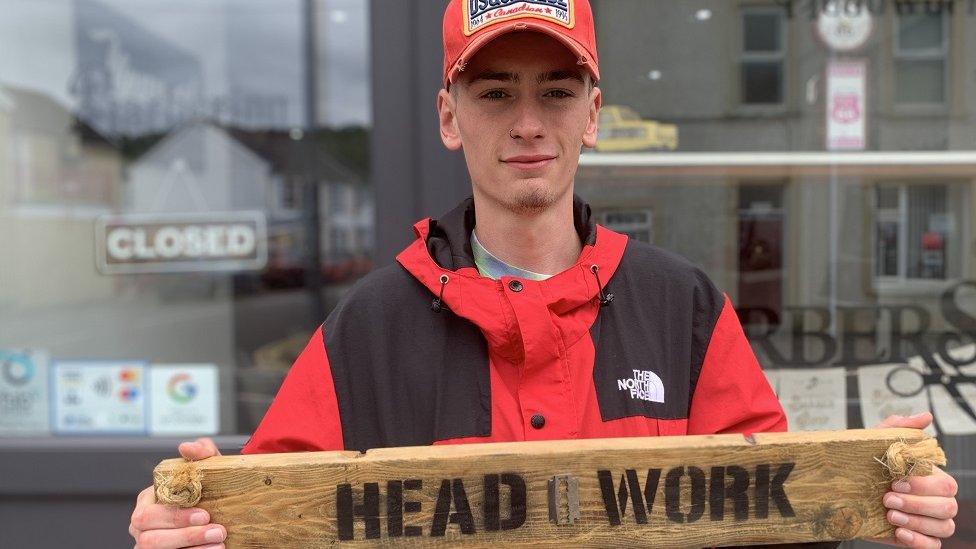
Cruellest cut: Tom Davies has been forced to shut his salon
Tom Davies opened his own barbers' shop back home in Glynneath, after working in different shops in Swansea. He was open for just nine months before the pandemic hit.
"It's been three months without any income coming in and it's getting harder," he says.
"I hadn't paid any tax in yet and I'd been open less than 18 months, so I can't get any money out, which I completely understand.
"I guess keeping people apart is the best thing. Until it's all secure, I wouldn't want to risk anything with my clients - isn't the right time yet."
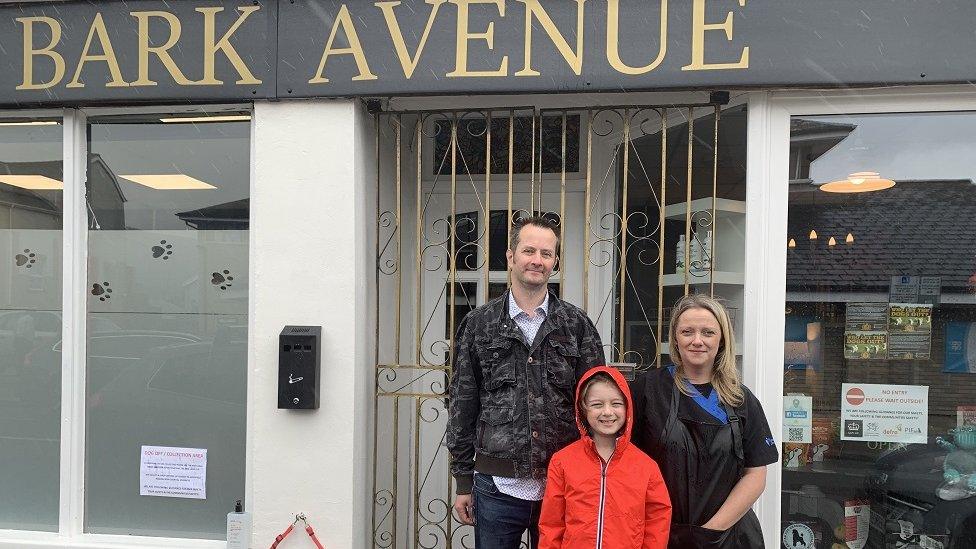
Mark and Lisa Gale run Bark Avenue dog grooming parlour
'We just need to keep going'
Mark and Lisa Gale run Bark Avenue dog grooming parlour.
They had been living in London but moved back to Lisa's home village just before Storm Dennis hit, and now the pandemic means they are restricted in how they operate.
"We opened back up two weeks ago," said Lisa. "You count one dog a time on the premises, but it's better to be safe and you can manage to keep the business going."
Mark added: "The new process is fairly long winded and we clean between each dog. We have disposable aprons, gloves, masks. It doesn't bring the jobs we'd like at the moment and we're not making money at this time - we just need to keep going until it's time to operate properly again."
Mark has wider concerns about the response to the pandemic and that we don't ease the lockdown too early.
"We want to see proper evidence showing that there isn't risk to not only myself but also the family and extended family," he added.

When I first came to Glynneath during lockdown in April, there was a feeling of acceptance of this unprecedented step to shut doors to fight the virus.
This community has pulled together in struggle in the past, but not quite like this. There was an energy, I was told, that has weakened and fewer people are walking about now.
But there is still, largely, the feeling of a community pulling together, of people watching out for each other. Some have returned to work at the nearby opencast site but one local café owner is getting frustrated at still only being able to serve a few takeaway customers.
In the main, there is a feeling the community is returning to its roots - and each other.
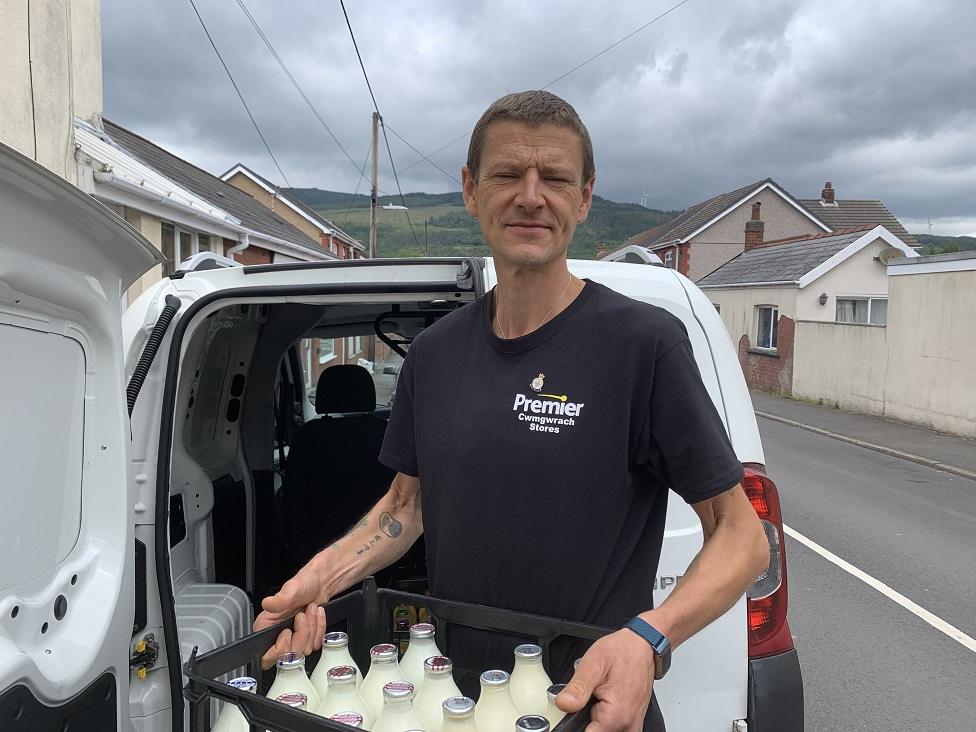
Noel said there was a lot of job satisfaction meeting customers - even with social distancing
'It's pulled people together'
Noel Harris recently started an "old-fashioned milk round with glass bottles" and it's proved popular in lockdown.
"It's a trip down memory lane, even for myself," said the ex-serviceman, known as 'The Mooing Milkman' by locals.
"A lot remembered like it used to be, with cream on top. It's been really good but some of the best results have been from the children, who'd not seen it before."
His van has been supplied by the Pen y Cymmoedd wind farm community fund.
"I've got elderly customers too, there's one in a wheelchair who I give a knock every other day to see if there's anything she needs for the next few days."
He believes this and the village shop have "pulled people together."
"Most people have accepted it. They're getting on with it."
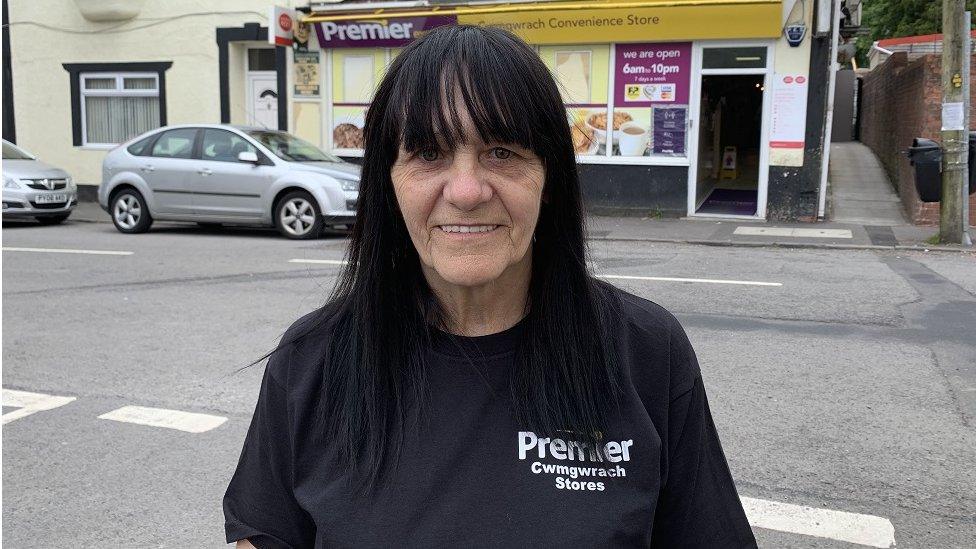
Margaret said the community had pulled together
'They don't know if they'll have jobs to go back to'
Margaret James runs Cwmgwrach Stores in the adjoining village, which started deliveries after demand took off from a request from one elderly couple, who were isolating.
It has led to widening the range of food available in the village shop.
"We were asked for fresh fruit, veg, meat for Sunday dinners - there had been panic buying at the time and shelves in the supermarkets were empty," she said.
"We decided to go to the local warehouses early in the morning, camping overnight in some cases, to make sure we had the stock for people locally.
"They're suppliers from Brecon, Cardiff, Swansea and the Rhondda. We've managed to source good quality at a reasonable price."
But she said in the wider community there was a concern about job losses.
"They're massively worried, they don't know if they'll have jobs to go back to, those who've been furloughed," said Margaret.
Along with the community spirit there is resignation that there is a very long way to go.
Sadly the real economic challenge for Glynneath - and communities across Wales - is only just starting to hit home.

The county has just under 5,400 people claiming benefit currently.
That's about 6.1% of the population - about the average for Wales. Normally, the figure is about 3.4%.
But claims of Job Seekers Allowance and Universal Credit have doubled between March and May - here and across the country.
What has kept families going has been the furlough scheme, set up by the UK government. One in five workers in Wales are currently not working and still getting 80% of their pay.
In Neath Port Talbot, that's 12,700 people under furlough, while another 3,400 self-employed people in the county are also getting financial help during lockdown.
The furlough scheme is due to end completely in October, while over the summer employers are expected to pay towards it. That's when the financial pressures will start to hit communities like Glynneath.
How many businesses - damaged by three months of lockdown will welcome back every one of their furloughed staff?
And how many of the rest of us will end up spending like we used to - putting cash back into the tills with enough ferocity to make up for what has been lost.
That's when the real challenge will hit.
- Published11 June 2020
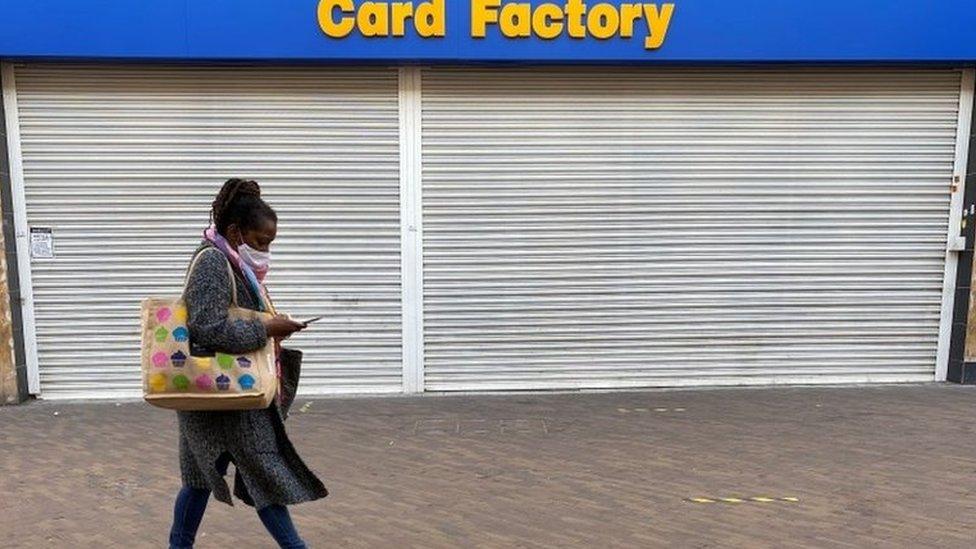
- Published16 June 2020
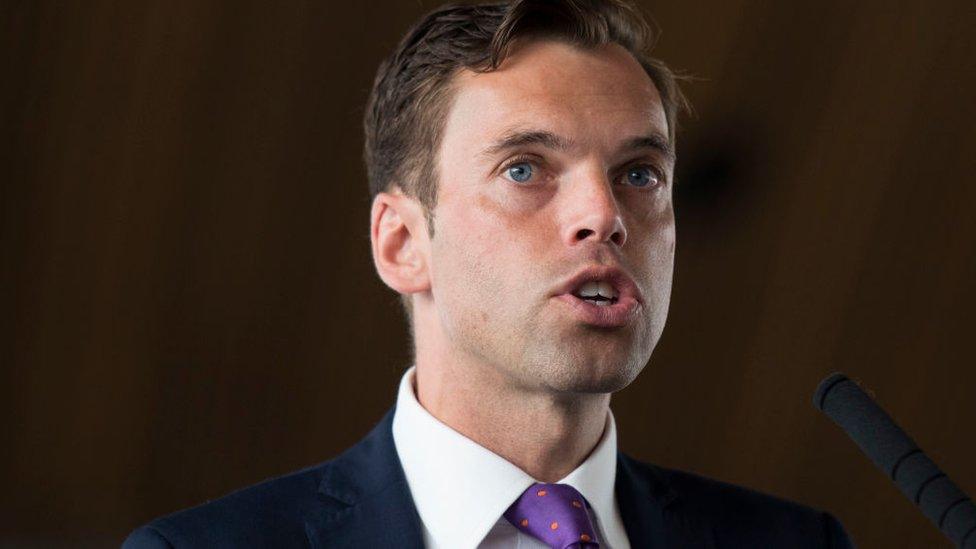
- Published16 June 2020

- Published11 June 2020
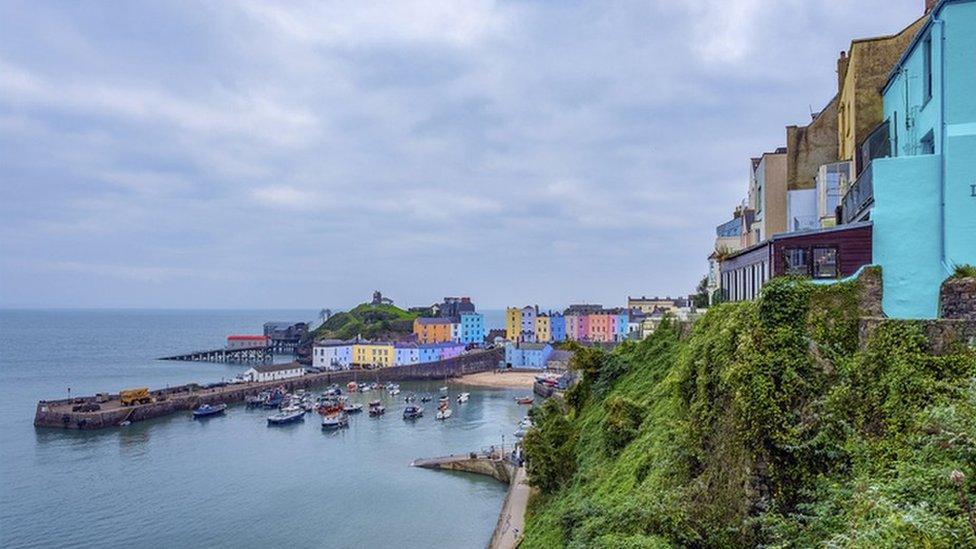
- Published5 May 2019
